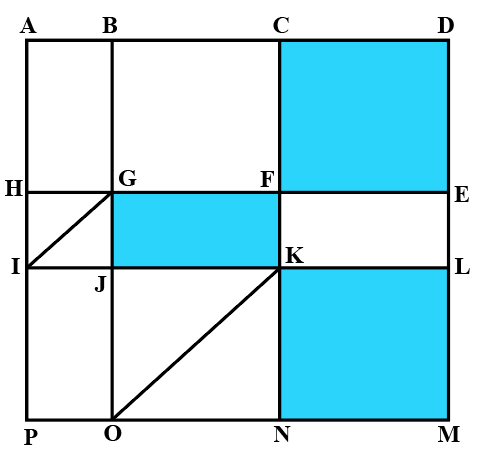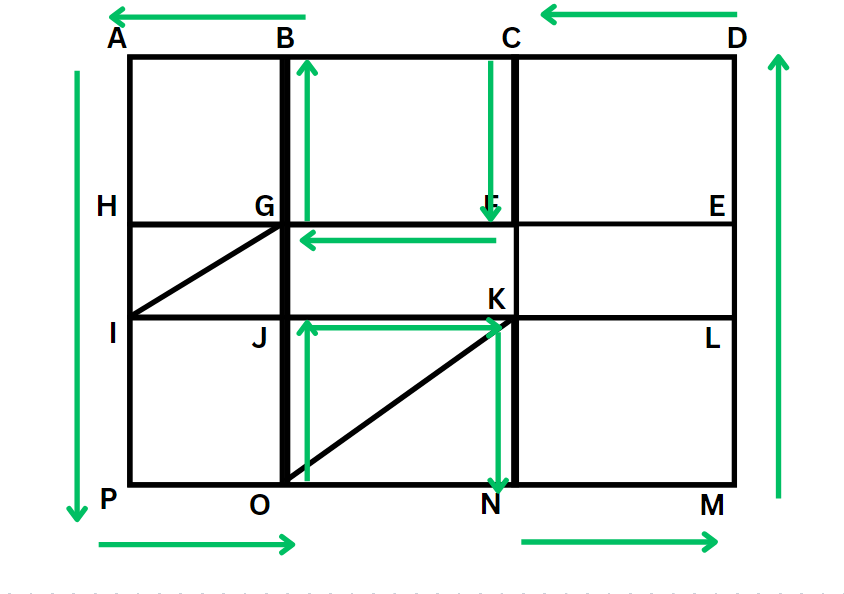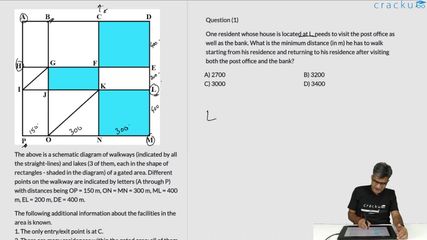Sign in
Please select an account to continue using cracku.in
↓ →

The above is a schematic diagram of walkways (indicated by all the straight-lines) and lakes (3 of them, each in the shape of rectangles - shaded in the diagram) of a gated area. Different points on the walkway are indicated by letters (A through P) with distances being OP = 150 m, ON = MN = 300 m, ML = 400 m, EL = 200 m, DE = 400 m.
The following additional information about the facilities in the area is known.
1. The only entry/exit point is at C.
2. There are many residences within the gated area; all of them are located on the path AH and ML with four of them being at A, H, M, and L.
3. The post office is located at P and the bank is located at B.
One resident takes a walk within the gated area starting from A and returning to A without going through any point (other than A) more than once. What is the maximum distance (in m) she can walk in this way?
Correct Answer: 5100
Counter to the first question, we should minimize the use of those hypotenuse walkways as they reduce the distance we travel.
The longest possible route would include then travelling through the edges of the rectangles and sqaures, and not touch any point more than once.
Best case scenario would be us touching each point exactly once.
This can be visualized as:

Where we do not use any of the hypotenuse and cross through each gate exactly once.
The total distance would be:
AH+HI+ IP = 400+200+400 = 1000
DE+EL+LM = 400+200+400 = 1000
PO+JK+NM = 150+300+300 = 750
DC+FG+BA = 150+300+300 = 750
JO+KN = 400+400 = 800
CF+GB = 400+400 = 800
Adding up to: 5100m
Therefore, 5100 is the correct answer.

Click on the Email ☝️ to Watch the Video Solution
Create a FREE account and get:
Educational materials for CAT preparation